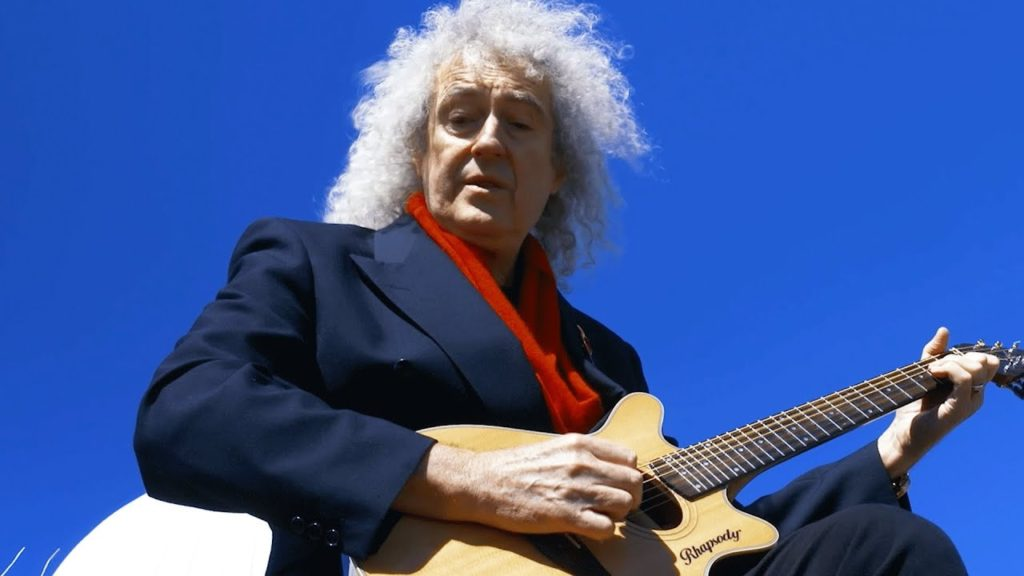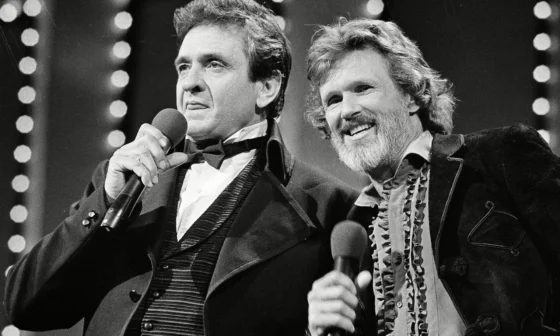It was the third day of June in the year of our Lord two thousand and two, when Buckingham Palace—fortress of kings and queens, citadel of ceremony and crown—was shaken not by trumpet nor by drum, but by the cry of a single guitar.
High upon the battlements, where once only watchmen kept vigil, there stood Brian May, warrior of sound and keeper of Queen’s flame. Clad in black, his silhouette carved against the heavens, he raised his weapon—not steel nor blade, but six strings strung with fire. From its heart came forth a roar, the ancient anthem of the realm, God Save the Queen.

The sound did not stay bound within palace walls. Nay, it rolled like thunder across the gardens, swept through the streets of London, and surged into the homes of nations far and wide. More than two hundred lands bore witness, as tradition itself clasped hands with rebellion, and rock ’n’ roll was crowned alongside royalty.
The path to that moment was no simple march. Through winding halls steeped in centuries of silence, May trod alone, ascending narrow ways until at last he emerged through a hidden hatch. There, beneath the vast sky, with all of London at his feet, he breathed deep and loosed his song upon the world.
To the multitude, it was spectacle. To May, it was transformation. “It was surreal, almost spiritual,” he confessed in later years, as though he had brushed against the very veil of history. “When I descended once more, I was not the same man who had ascended.”
Thus was born a moment that would not wither with time. For what is music, if not magic? And what is courage, if not the daring to lift an electric hymn upon the stones of kings? In that hour, May did more than play a song—he carved a legend into the sky itself.
And still it endures, whispered by critics, replayed in chronicles, retold by the faithful. A reminder to all dreamers and minstrels alike: the boldest visions—those deemed folly, those spoken of in jest—are oft the ones that bend destiny, and echo down the ages.





